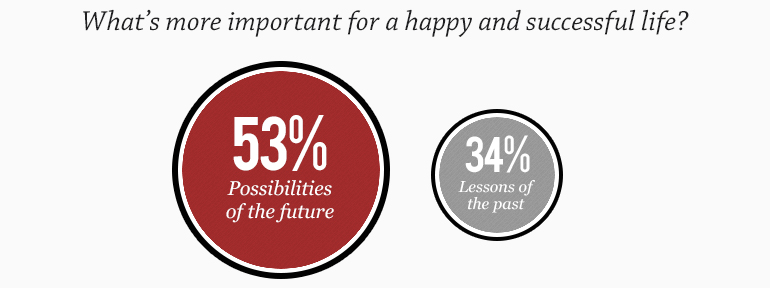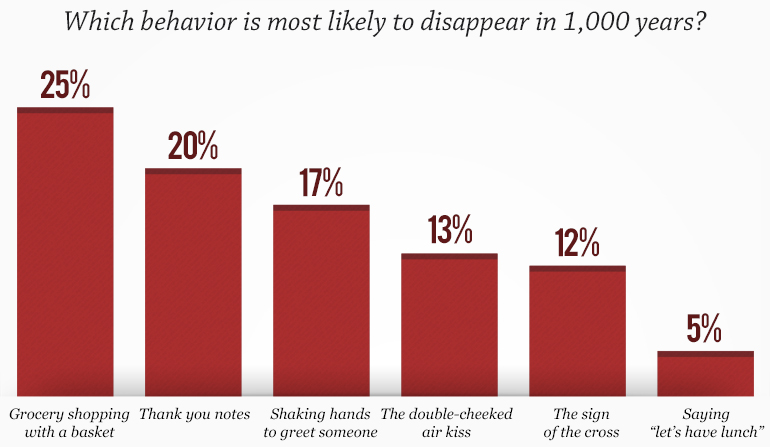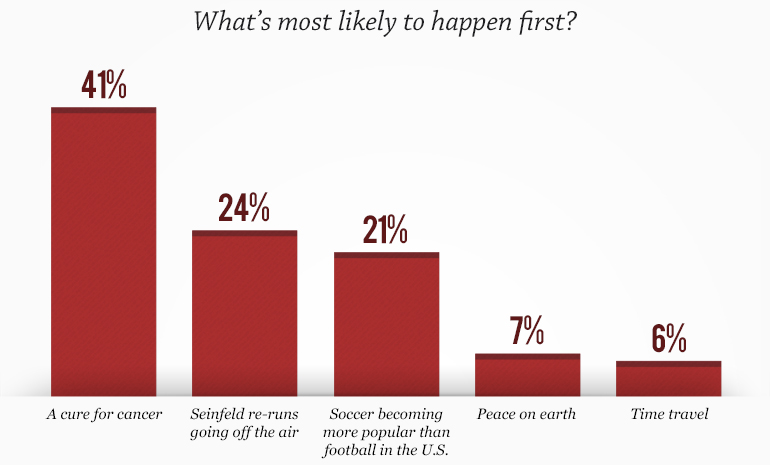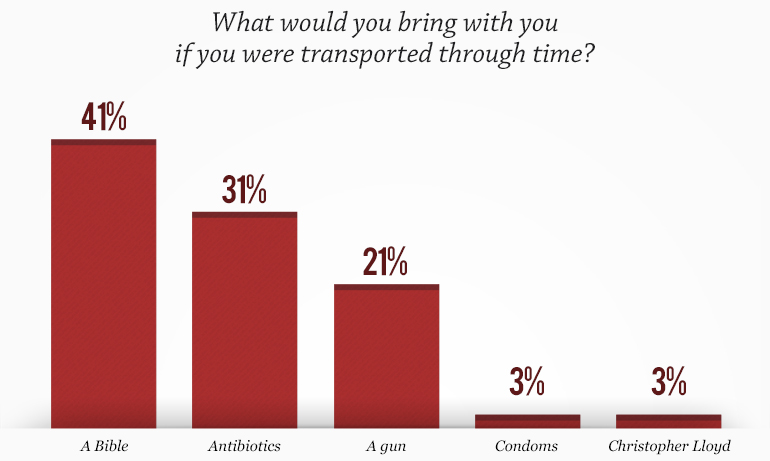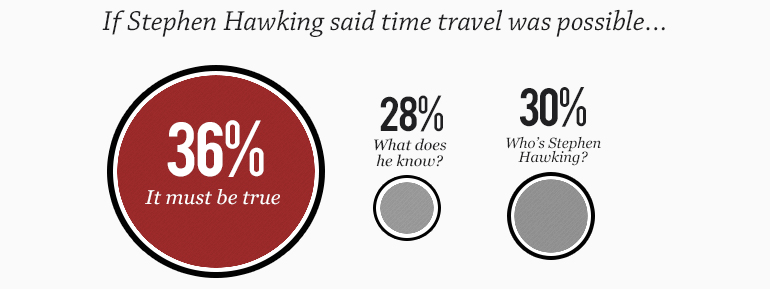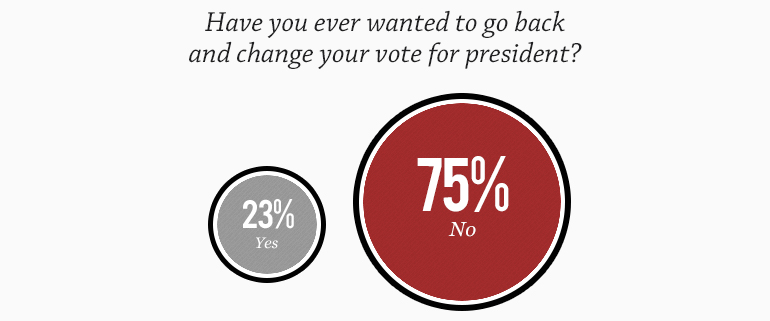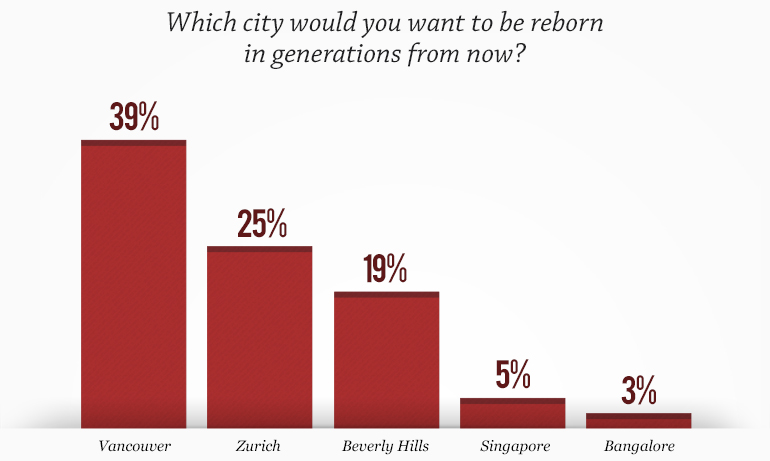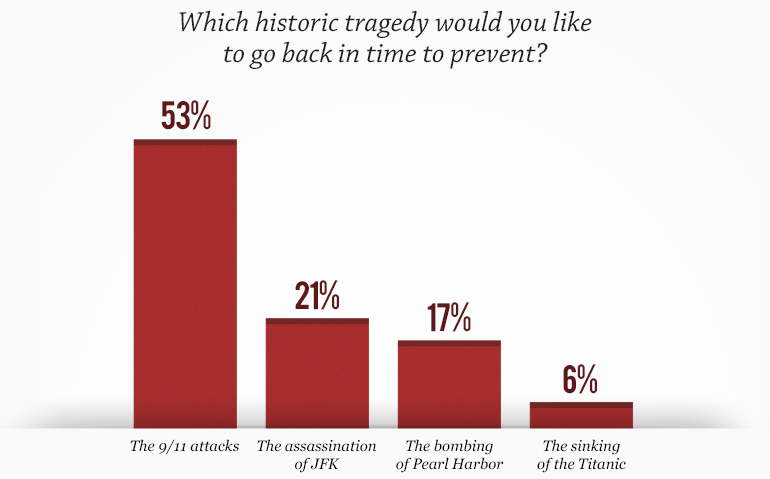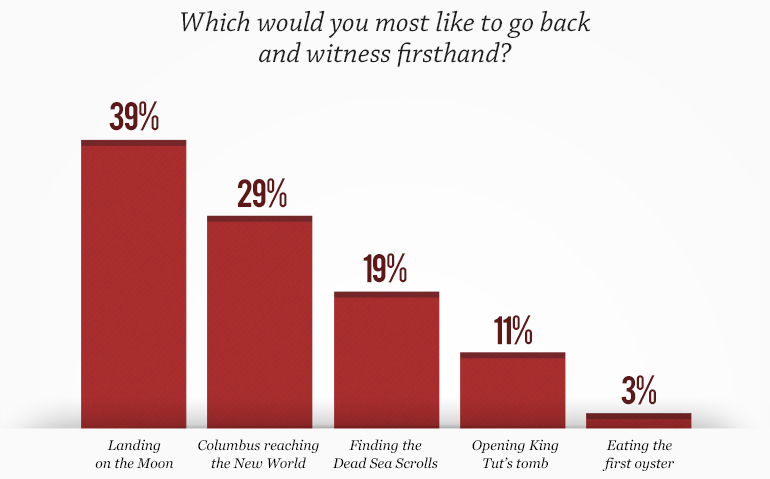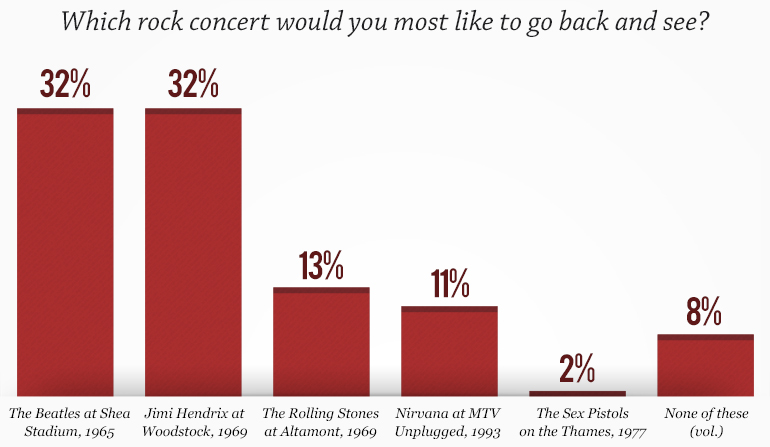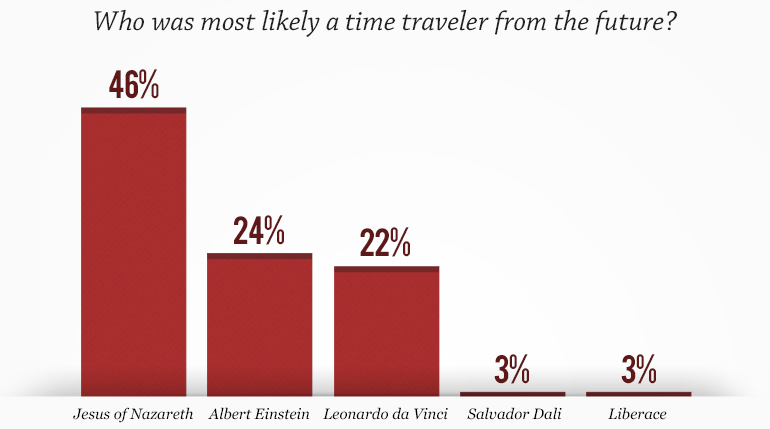60 Minutes/Vanity Fair poll: Time Travel
Welcome to the 60 Minutes/Vanity Fair poll for September 2015. This month's poll topic is Time Travel. People have had flights of fancy about traveling through time for centuries. They first appeared in folklore and religious stories and later in books such as "A Christmas Carol" by Dickens and "The Time Machine" by H.G. Wells. There have been countless stories about it in film and television, but the reality of Time Travel based on scientific theory may be more problematic. Even the eminent physicist Stephen Hawking, who should know a thing or two about the subject, has suggested that the absence of tourists from the future may be an argument against the theory of the possibility of Time Travel. Until we meet those travelers, we can count on many more fanciful stories of traveling back (or forward) in time to change the past or the future. If you were given 24 hours to try to prevent one of these historic tragedies (9/11, JFK, Pearl Harbor or Titanic) which would you choose? We look forward to your answer to this question and many more, and now the results....
look back or ahead?
A majority of Americans (53 percent) think it is more important to have a clear vision of the possibilities of the future than to have a firm grasp on the lessons of the past (34 percent). Despite the well-known axiom by Santayana that "those who do not remember the past are condemned to repeat it," it appears that most Americans, like their forbears, are still forward-looking optimists.
Test of Time
A thousand years from now, 25 percent of Americans say you can cross shopping baskets off your grocery list, 20 percent think we'll have written off thank you notes, 17 percent think shaking hands will be waved off, 13 percent foresee the double cheek air smooch getting the kiss off, 12 percent predict we will not be making the sign of the cross and only 5 percent think people saying let's have lunch (and not meaning it) will be a thing of the past. A millennium from now, many things will be very different, but probably not human nature. It has changed little over thousands of years and most Americans think that many of our basic behaviors customs and habits will still be in practice.
All In good time
Four out of 10 Americans think we will find a cure for cancer before Seinfeld episodes stop airing (24 percent) or soccer becomes more popular than football in the U.S. (21 percent), or there is peace on earth (7 percent) or time travel becomes possible (6 percent). Even a nation full of optimists has a hard time envisioning a day when there is peace on earth.
Travel Light
Four out of 10 Americans would bring a Bible to protect them from danger or evil, three out of 10 would bring antibiotics to protect against disease, two out of 10 would bring a gun to protect themselves from attack, 3 percent would bring condoms to protect themselves from themselves (or whatever) and another 3 percent would bring Christopher Lloyd, "Back to the Future's" Dr. Emmett (Great Scott!) Brown just in case their flux capacitor goes on the fritz.
Possible?
Thirty-six percent of Americans think that if the great physicist and cosmologist Stephen Hawking said that time travel is possible then it must be true. Twenty-eight percent said what does he know? And 30 percent don't even know who "he" is. He is the guy who has written monumental books like "A Brief History of Time" and "The Theory of Everything" and was portrayed recently by Eddie Redmayne in a film of the same title for which he won the Academy Award for Best Actor.
Recast your Ballot
Three out of four Americans said they have never wished that they could go back in time and change their vote for a president of the United States. Twenty-three percent said they would take a Mulligan and wished they could go back and recast their ballot. Many Americans probably get voter's remorse when their candidate doesn't live up to their rhetoric or promise, but generally not enough to bother going back in time to vote for someone who may end up being just as disappointing.
City of the Future
This question asks people to look in to their crystal balls to see which of these prosperous global cities they would most like to be born in several generations from now. From the list provided, 39 percent would choose Vancouver known for its beauty and quality of life. Next in order were the well-established and beautiful cities of Zurich 25 percent and Beverly Hills 19 percent known for their wealth and opulence and finally by the Asian cities of Singapore five percent and Bangalore three percent known for excellent economies and job opportunities.
Change History
If given 24 hours to try to stop one of these historic tragedies, a majority of Americans (53 percent) would go back in time and try to prevent the 9/11 attacks. Twenty-one percent would try to stop JFK from being shot, 17 percent would try to prevent the bombing of Pearl Harbor and six percent would try to warn the Titanic to be on the lookout for icebergs. It is natural to think of time travel as the best mechanism with which to undo or prevent a historic tragedy. Most Americans who are old enough can still remember where they were 14 years ago when they heard that The World Trade Center in New York City was attacked.
Eyewitness Account
Now here's a question that people of all ages can have fun discussing around the dinner table or wherever they may be congregating. From the list of historic discoveries provided, 35 percent said they would most like to go back to July 20, 1969, and witness Apollo 11 land Neil Armstrong and Buzz Aldrin on the moon. Twenty-nine percent would set the "way back machine" to 1492 to watch Christopher Columbus sail into the harbor of a Caribbean island he called San Salvador. Nineteen percent said they would like to see the rediscovery of the Dead Sea Scrolls starting in 1946, 11 percent would go back and watch Howard Carter enter King Tut's tomb in 1923 and three percent would go back untold thousands of years ago to see who was brave (or hungry) enough to eat the first oyster. This is one of the ideals that future time travelers can aspire to, to witness great deeds done in the service of exploration and knowledge.
Rockin' Out
Another fun fireside fantasy to discuss is which great rock concert would you go back in time to see? From the list of choices provided, 32 percent would go back to 1965 and see the Beatles play at Shea Stadium, another 32 percent would go back to the Summer of Love, 1969 and watch Hendrix at Woodstock (and see a lot more great performances for their money), 13 percent would wait until later in 1969 and revisit the controversial concert at Altamont in California where the Rolling Stones were the last act to play before it came to a premature and violent end, 11 percent would set the time machine for 1993 and watch Nirvana tape a concert in NYC for MTV Unplugged and only two percent would shoot for England in 1977 to see the Sex Pistols create anarchy while boating on the Thames.
From the Future
From the list of five people from the past, 46 percent chose Jesus as being the most likely to have been a person visiting from the future, followed by Albert Einstein 24 percent, Leonardo da Vinci 22 percent, and the flamboyant artists Salvador Dali and Liberace with three percent each. There is very little that hasn't already been thought, said or done, but this may be the first time in history where Jesus and Liberace appear together as possible answers to the same question.
This poll was conducted by telephone from July 2-7, 2015 among a random sample of 1,020 adults nationwide. Data collection was conducted on behalf of CBS News by SSRS of Media, PA. Phone numbers were dialed from samples of both standard land-line and cell phones. The error due to sampling for results based on the entire sample could be plus or minus 3 percentage points. The error for other subgroups may be higher. Interviews were conducted in English and Spanish. This poll release conforms to the Standards of Disclosure of the National Council on Public Poll. Read more about this poll.
